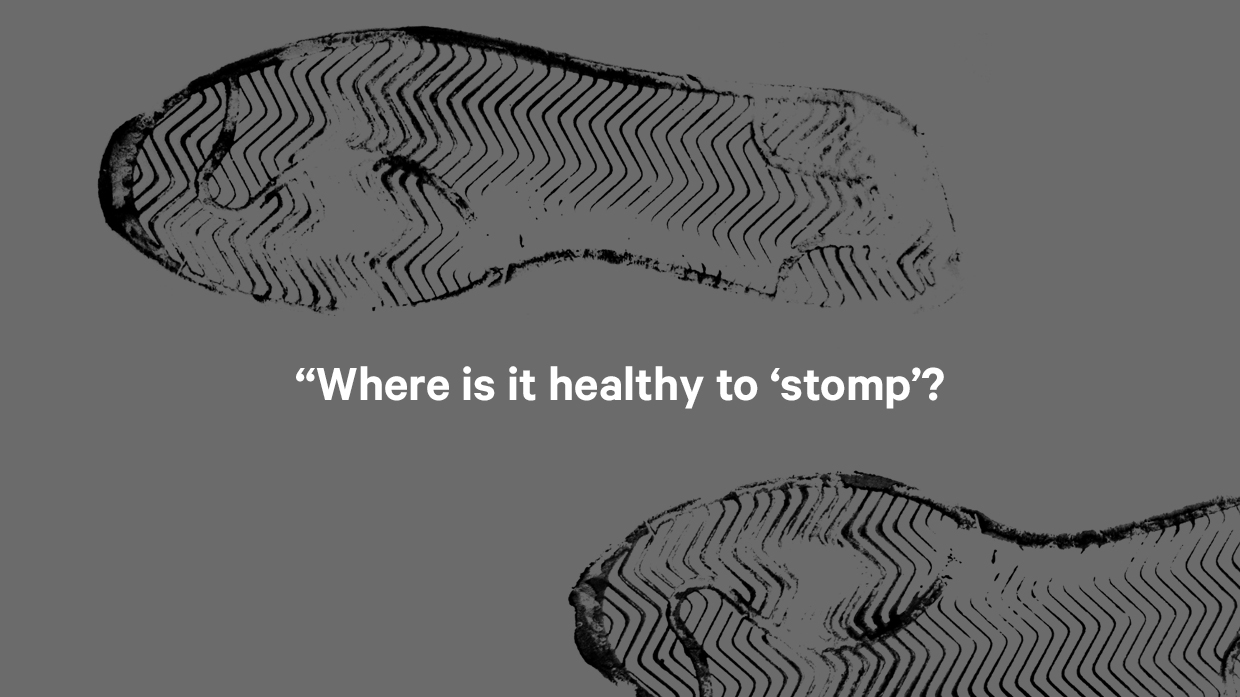The poem "Past Carin'" by Henry Lawson describes the hardships of women in the Australian bush. It brings to mind the resilient, leather-skinned face of a once-pretty woman.
Through childbirth, sickness, hurt, and blight,
And nervousness an' scarin',
Through bein' left alone at night,
I've got to be past carin'.
Past botherin' or carin',
Past feelin' and past carin';
Through city cheats and neighbours' spite,
I've come to be past carin'.
As a sensitive person, I'd love to be "past carin.'" It would be easier than being always open to disappointment, shame, and pain. But I'm a pastor. Ministry doesn't give us that option. Daily, we're exposed to risk and failure, vision and disillusionment. It's excruciating.
But we follow the best example. God could have shunned us when we rejected him. He could have blown us out of existence. Instead, he chose to engage, and in a way that exposed him to ridicule, rejection, and harm. He let himself be touched by suffering. His flesh and his heart have been breached and yet he is not destroyed.
Revelation's Lamb, standing as if slain.
But in all his openness, he remained true to himself. There are some who will abuse our openness, shaping their pain into darts to hurl our way. (How do they manage to direct it so pointedly at our own deepest wounds?) What does it mean to engage broken people, as broken people? Does opening ourselves to them mean receiving every dart they throw?
In his book of fables, Edwin Friedman tells a tale about John, a man whose nerves protrude outside of his body. To avoid hurting him, his wife gives him plenty of space. But he becomes more and more entitled, forgetting he is the one "leaking" into public space. His wife is forced to live in the cramped space he leaves for her and the stress begins to take its toll on her health.
Soon she sees that what she does out of care for him is not helping either of them. And so she does the most loving thing she can do: she starts stomping, chasing John all around the house, stomping, stomping, until they both collapse, exhausted, on the bed. When they awake, all his nerves are tucked back in his body, where they belong.
This powerful image forces me to ask, "Where is it healthy to 'stomp'? Am I 'stomping' for my own sake or for the sake of health?" It forces me to ask where I'm finding my approval. Once I've done the hard work of giving my hurt and self-preservation to God, I can see a little more clearly the ways I'm seeking approval from others—often the best places to "stomp." But I'm never truly ready.
I'd like to gain understanding in the safety of my own room. I want to have all issues resolved before I engage. But that assumes I'm the only one involved. There's no way to anticipate what engagement will bring. So I have no option but to step into the discomfort, trusting that the Lamb is in it with me.
This has been a hard week. It's brought three separate ministry situations that threatened to leave me irreparably broken. My self-preservation told me, "Run!" or "Come out swinging!"
But the image of the standing, broken Lamb drove me into the mess, gave me strength to see and be seen.
And in two of the three situations, I saw resurrection—which gives me hope for the third.
Revelation is filled with paradoxes. Just when we think we're strong, we're overcome. And just when we think we're overcome, we're strong. It's a reminder of our story. Brokenness wants us to believe it's the whole story—that we are only overwhelmed, beyond hope. But Revelation reminds us that weakness is only part of the story. The Lamb is slain but he still stands. And he calls us to do the same.
Mandy Smith is lead pastor of University Christian Church in Cincinnati, Ohio, and author of The Vulnerable Pastor (IVP, 2015).
Copyright © 2016 by the author or Christianity Today/Leadership Journal. Click here for reprint information on Leadership Journal.









